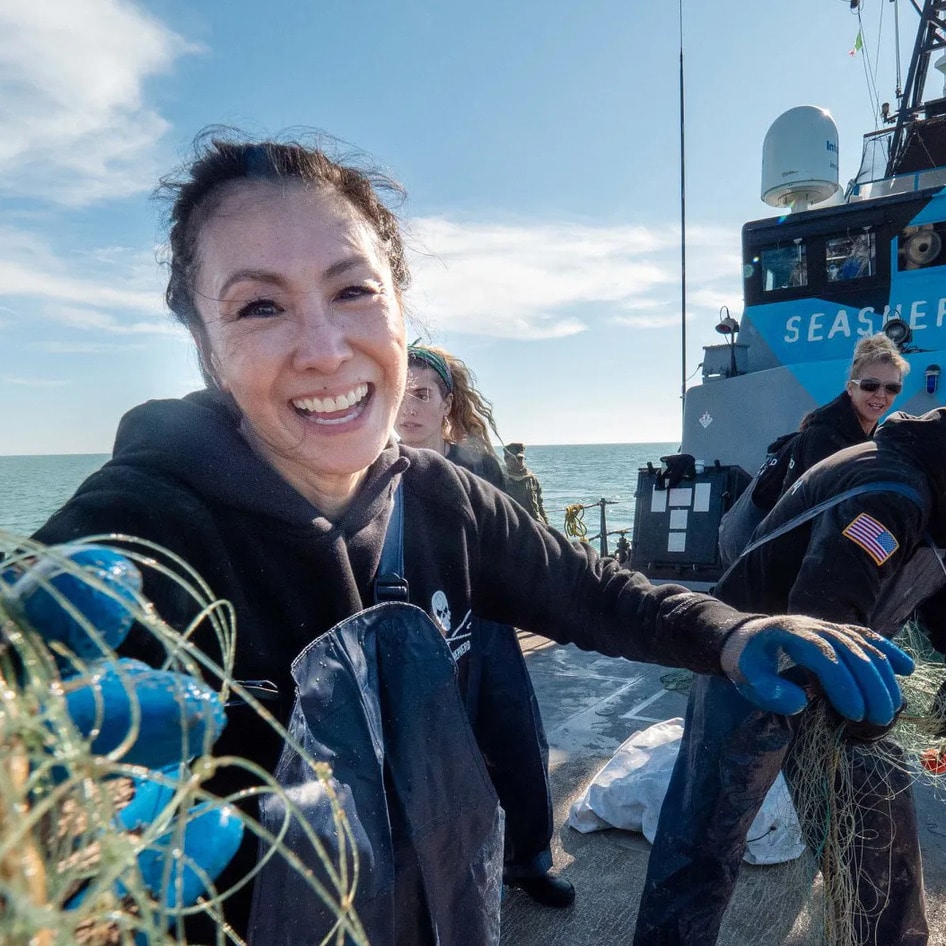Whale Wars: Sea Shepherd’s New TV Show
Yes, Virginia, there really is a reality TV show worth watching with the whole family.
December 7, 2008
Brainless, not-so-realistic network programming got you down? Then “Whale Wars,” Animal Planet’s foray into the reality realm, is the show you are looking for. The seven-episode series (Fridays, 9pm), follows Captain Paul Watson and his band of Sea Shepherd Conservation Society volunteers/pirates on a life-and-death adventure to find, harass, and ultimately stop illegal Japanese whaling fleets from conducting deadly “research.”
Animal Planet embedded a crew onboard the Steve Irwin, the newly christened SSCS vessel named in honor of the late conservationist and Sea Shepherd supporter. The AP crew had such full access to the SSCS crew that the series resembles a documentary as much as a television drama, and while “Whale Wars” doesn’t pit crewmembers against each other, there is some dark comedy among shipmates. Not surprising, really, considering everyone is allowed but one three-minute shower every three days, and that their living quarters are tight, with no ability to “get away.” Which is not unlike the VegNews office during deadline week (though we get to walk around the block if need be). Those aboard the Steve Irwin would have found a similar stroll a bit cold and wet, and I’m not so sure the touchy-feely Captain Watson is all that interested in such trivialities when he has the seven-ship Japanese whaling fleet to contend with.
The first episodes of “Whale Wars” are filled with more real drama than all the other “pretender” reality shows combined. During a training exercise, a dingy overturns, treating four crew members to an unplanned ice bath; the ship’s helicopter, necessary in tracking the whalers, gets a chip in one of its blades, making it risky to fly—yet, it must; after two of the Sea Shepherd crew board the harpoon vessel Yushin Maru 2, it looks as if the Japanese team might throw them overboard. Remember, the whalers aren’t aware that they are participating in a made-for-television docudrama, and all this is taking place at the bottom of the globe, thousands of miles from the nearest police station or helicopter repair shop.
In addition to the non-fabrication of the above events, it’s important to see “Whale Wars” as educational television. The issues presented—the allegedly illicit Japanese whaling operation; the survival of a highly evolved fellow species; the legality of the Sea Shepherds patrol of international waters (a whale sanctuary, mind you)—are not made-up-for-television events. All are actually happening, unfolding in front of the cameras, into living rooms around the globe. The ability to reach unaware citizens with this message makes “Whale Wars” a must-see for anyone with a conscience.
Whaling Factoids
- There are approximately 80 species of cetaceans worldwide, and the blue whale, humpback whale, and the right whale are on the brink of extinction due to hunting and environmental factors
- The International Whaling Commission enacted a moratorium on all commercial whaling in 1986, yet Iceland, Japan, and Norway continue to kill whales using a loophole that allows slaughter for “scientific research”
- The global effort to halt the illegal killing of whales is headed by groups such as Sea Shepherd Conservation Society, Greenpeace, and the International Whale Protection Organization
JUMP TO ... Latest News | Recipes | Guides | Health | Shop







